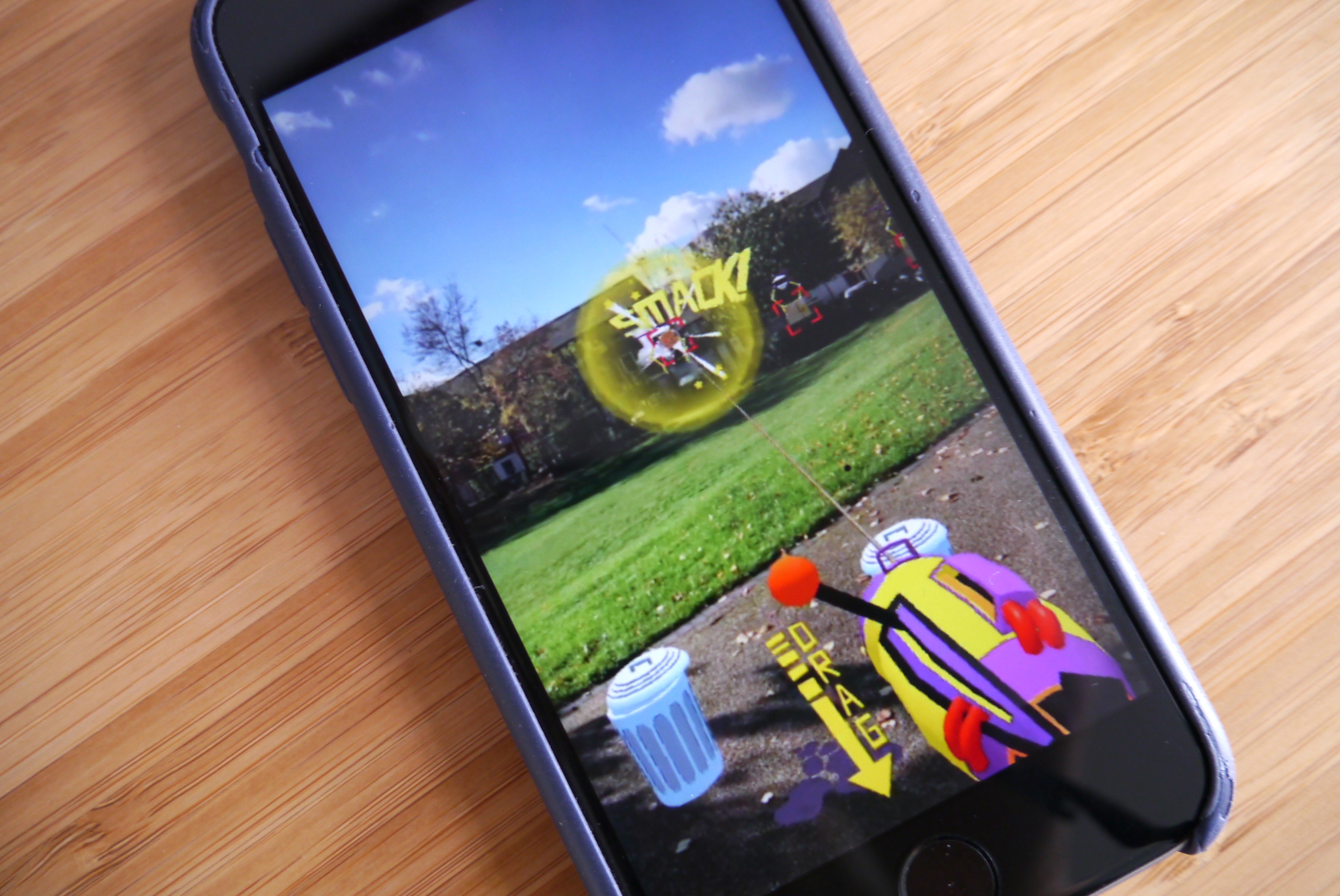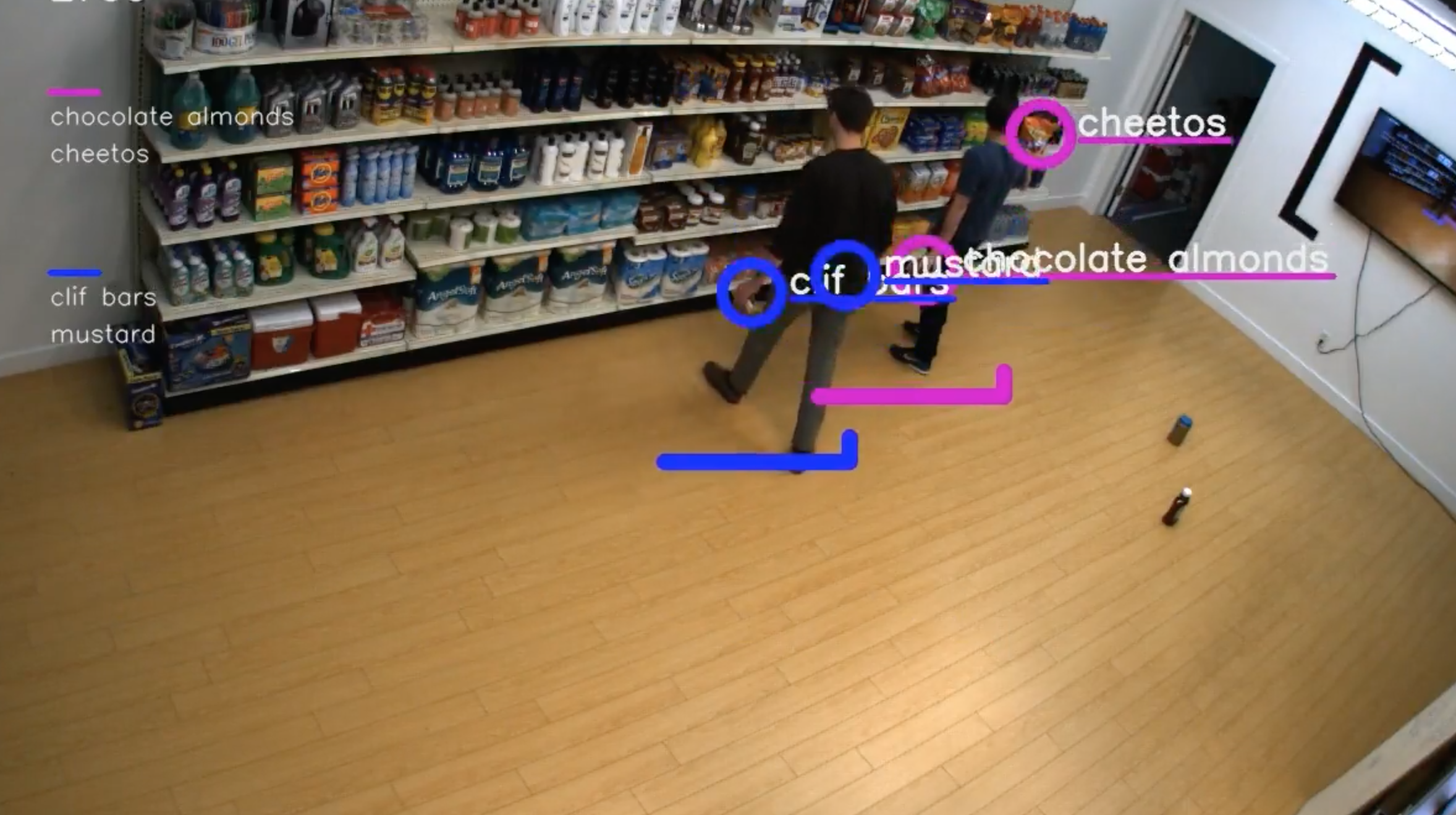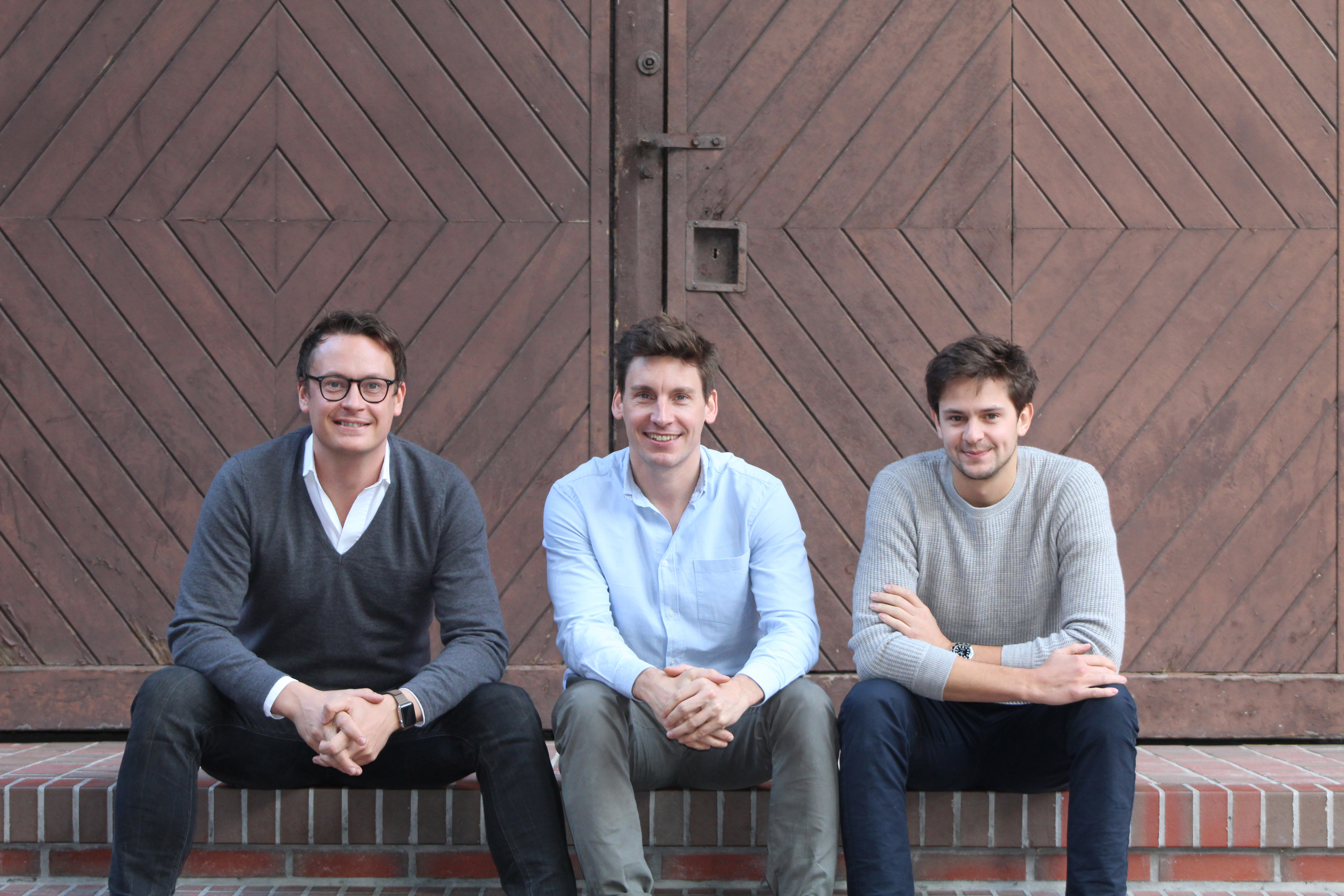First Minute Capital joins $5.8M seed for AR treasure hunt game Snatch

Pokemon Go is a game that spawns cute monsters for players to try to catch. But the massive popularity of the augmented reality title, which saw hoards of humans roaming parks and piers seeking elusive Pokemons last year at the height of the craze, is also spawning plenty of wannabie AR mobile gaming smash hits.
To wit, meet Snatch: A just seed funded (with £4.4M) augmented reality game which beta launched in the UK in February with a plan to entice the 18- to 24-year-old demographic to play the app by offering some non-virtual prizes from brands like Heineken, Deliveroo, Missguided, Boohoo, Gousto, Virgin Wines and Samsung.
Because, well, if you don’t have the Pokemon brand behind you to power millions and millions of downloads you need some alternative persuasion mechanism to try to woo the masses.
Snatch is now launching its Android and iOS apps out of beta, as well as announcing its seed — which is led by Initial Capital with participation from First Minute Capital, CrunchFund, Simon Equity Partners, Cassius Family Fund, Hanson Asset Management, Velocity Technology Fund and Silicon Valley Bank. The startup was founded in 2016 and has previously received funding from Unilever Ventures.
The Snatch game mechanic involves players first locating a virtual parcel by spending time looking on a map or looking around them using AR to find parcels that appear overlaid over their environment (or else by finding other players who have already found a parcel and stealing it from them). But then they also have to hold onto the parcel they’ve found/obtained for six hours by defending it against theft attacks from other players before the parcel opens and they get to see what it is they’ve actually won.
The app managed downloads of ~550,000 over the nine-month beta period and says active daily users were within the 40,000 to 60,000 range at this time. It also claims players averaged 1hr 33mins per day in the app across 12 sessions of gameplay.
But the question to ask is how sustainable is initial stickiness that’s clearly engineered into the game mechanic — i.e. once players get disillusioned by how much time they’re having to spend playing to not win very much (if you check out reviews of the app there’s a lot of disgruntled people complaining they never won anything of real worth).
Snatch co-founder Jamal Hirani tells us: “So far to date, we’ve given away £300k in hard cash. In terms of other prizes, we’ve given away prizes to the value of £10m — ranging from NOW TV passes, physical products such as games consoles, iPhones, Amazon Vouchers, and a House Deposit worth £15,000. These prizes have been distributed over the past eight months during our beta and over a million prize parcels won.”
Curious about the number of disgruntled reviewers unhappy about spending hours and hours trying to win something of actual worth, we asked Hirani how many players the £300k in cold hard cash has been distributed to.
“As of today [November 1] 86,566 golden parcels have been found with parcel values ranging from £1 — £15000,” was the reply.
Then we asked what proportion of the parcels contained £1? And what proportion contained £15k? Hirani revealed: “85% contained £1 and 15% the rest.”
We then asked for a further clarification of the split — and got this: “15% contained between £1.01 – £15000.” He also added: “So far to date 1 out of 10 £15k parcels have been found.”
So there you have it. The vast majority of Snatch cash prizes genuinely are of almost no worth.
And, safe to say, receiving a £1 ‘prize’ or a 10% discount voucher for something you don’t want to buy (or indeed some in-game coin currency that has no external worth at all) after clocking up hours and hours of repetitive gameplay probably isn’t going to excite too many Millennials for too long.
Of course Snatch is now touting a fresh batch of prizes injected into the game for the official launch (“£50M worth” it says — and just £2M worth of cash prizes out of that, presumably most of which will also be distributed into parcels containing not enough cash to buy a coffee). So it’ll be hoping to hook a fresh batch of kids to play against the odds.
How do the co-founders defend against the charge that their game encourages addictive behaviors among users?
“Players don’t have to play for the whole time the parcel counts down. Players are notified if someone attempts to steal their parcel and they can then choose to defend or surrender their parcel if they wish. Typically, an average user visits the app 13 times a day, spending around 10 minutes in game per visit,” is Hirani’s response on that.
Co-founder Joe Martin also chips in, saying: “Typically, until now think about how people have been interacting with their smartphones — walking around; shoulders hunched, head constantly down or the amount of time with the smartphone being faced back at them as they screw their face up and take thousands upon thousands of selfies and spend more time diarising their life for social acceptance than actually living it — this is what we want to change.
“By using AR we have people holding the phone up, connecting with and exploring the world around them through the Snatch lense that will, in time, allow them to engage more and more with each other as well as brands and both the physical and virtual worlds around them challenging them to actually step out and discover what the world has to offer.”
So it’ll be over to the target Millennials to judge whether engaging in what amounts to a branded marketing exercise in the largely forlorn hope of receiving something of tangible value in exchange for hours of their free time can rightly be described as “exploring the world around them”.
Snatch has offices in London and San Francisco, and says it will use the seed funding to grow the app in the UK — as well as start planning to expand internationally, with a US launch slated as being “on the horizon”.
Published at Thu, 02 Nov 2017 10:52:09 +0000





